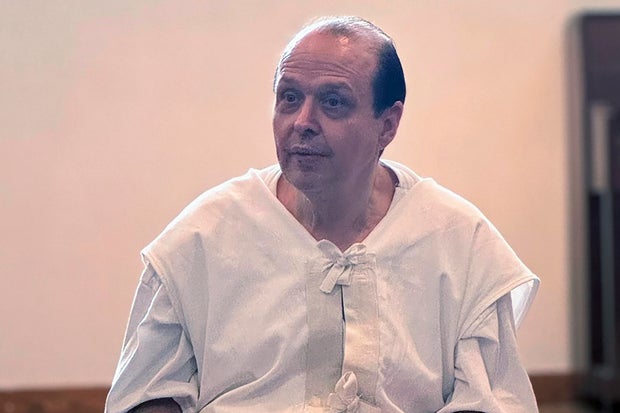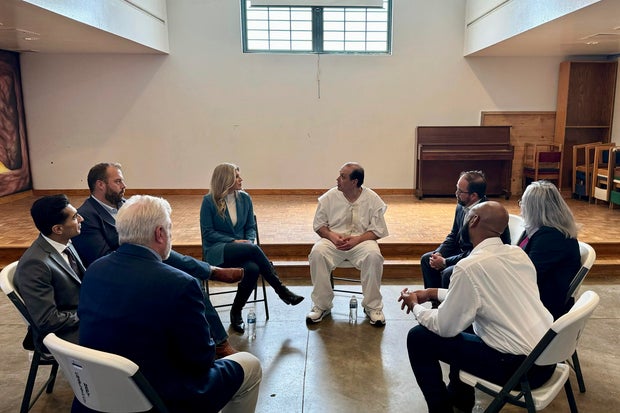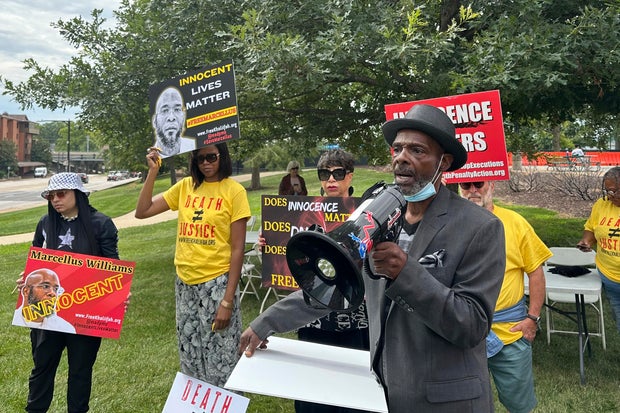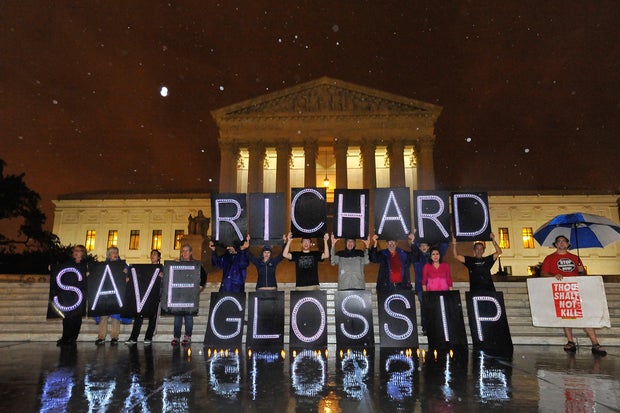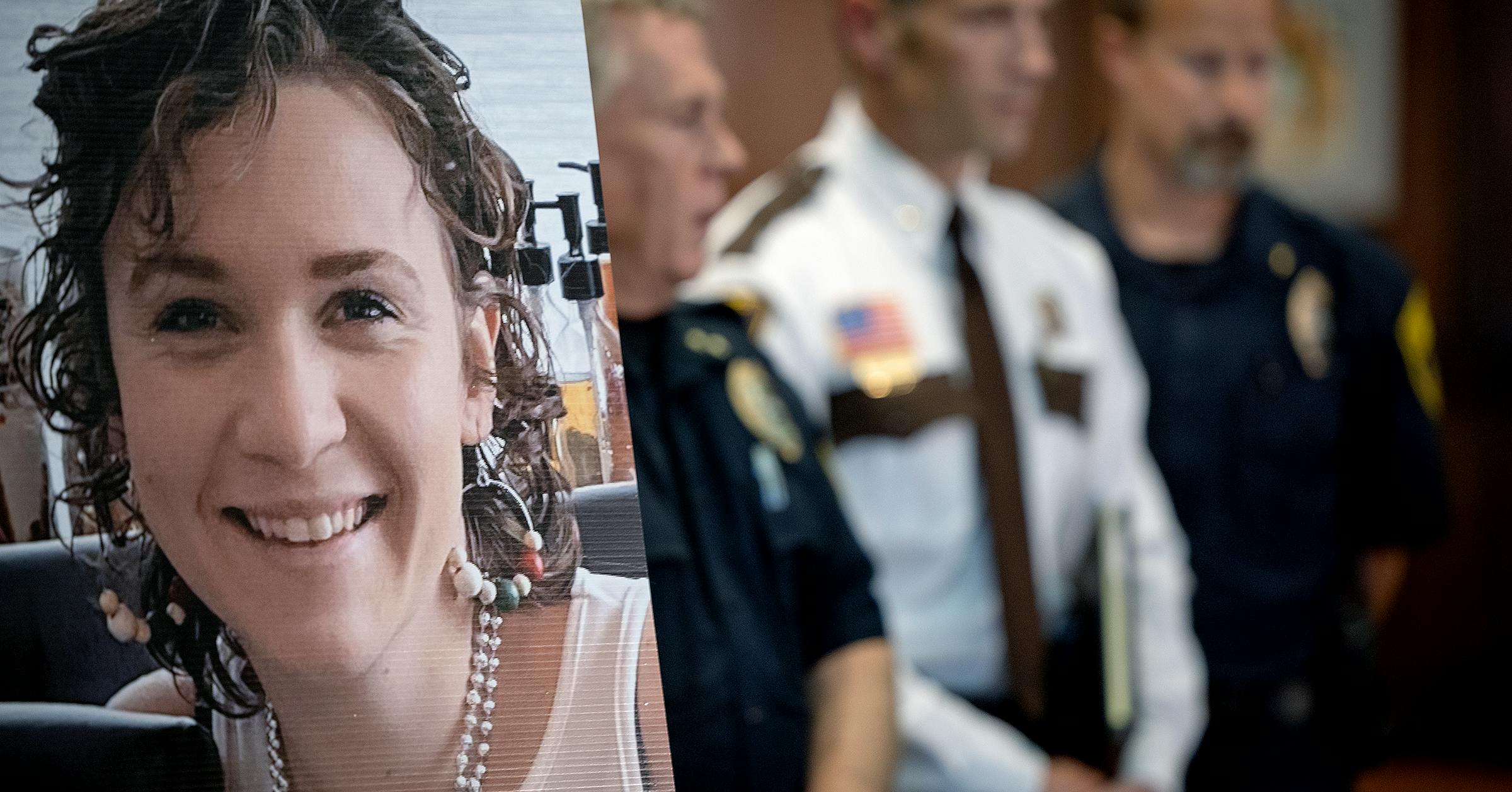CBS News
Breaking down Kamala Harris’ Fox News interview, Trump’s town hall on Univision

Watch CBS News
Be the first to know
Get browser notifications for breaking news, live events, and exclusive reporting.
CBS News
Oct 17: CBS News 24/7, 1pm ET

Watch CBS News
Be the first to know
Get browser notifications for breaking news, live events, and exclusive reporting.
CBS News
Kamala Harris reacts to Yahya Sinwar’s killing

Watch CBS News
Be the first to know
Get browser notifications for breaking news, live events, and exclusive reporting.
CBS News
Texas execution is latest death penalty case to proceed despite shifting stances by law enforcement and prosecutors

Texas is planning to execute a death row inmate Thursday whose case has drawn widespread scrutiny, as doubts linger over whether his decades-old criminal conviction would stand up in court today — and whether he even committed the offense that back then was considered a crime.
Robert Roberson, 57, is scheduled to die by lethal injection Thursday for killing his 2-year-old daughter, Nikki Curtis, in 2002. Roberson, who has maintained his innocence, would become the first person in the United States put to death for a murder conviction tied to shaken baby syndrome if the execution goes ahead as planned.
His case is the latest in a string of instances where officials and prosecutors integral to the conviction and sentence of a condemned person have backpedaled on their original position about the individual’s guilt or punishment.
Roberson’s death sentence sparked controversy as it revived debate about shaken baby syndrome, a condition known in the medical community as abusive head trauma. It occurs when an inflicted head injury, caused by an adult forcefully shaking an infant or young toddler, results in serious brain damage that can be fatal. Many professionals in the fields of science and medicine now argue such a diagnosis is questionable and deeply flawed, because the definitions of shaken baby syndrome are vague and inconsistent, often overlapping with symptoms of other diseases that manifest on their own.
Criminal Justice Reform Caucus/Associated Press
“We need to reconsider the diagnostic criteria, if not the existence, of shaken baby syndrome,” researchers wrote in a 2004 paper on the condition published in The British Medical Journal. As more evidence to support points like theirs infiltrated mainstream medicine, at least dozens of people in the U.S. convicted of crimes linked to shaken baby syndrome were exonerated, according to the National Registry of Exonerations.
As the science around shaken baby syndrome evolved, attorneys for Roberson have raised concerns about the legitimacy of his daughter’s diagnosis and how it influenced the jury’s guilty verdict. Evidence brought to light since then indicates the baby died from undetected pneumonia that developed into sepsis, and likely turned fatal after she was prescribed medication that would have hindered her ability to breathe, the attorneys said in court filings.
Compounding questions about the infant’s diagnosis is broad skepticism over the fairness of Roberson’s case. Brian Wharton, the lead detective who investigated the death of Roberson’s daughter in east Texas city of Palestine, helped convict him. Wharton now advocates vocally for the courts to review his conviction, citing changes in how science understands shaken baby syndrome and how law enforcement understands Roberson.
Wharton has said openly he believes Roberson is an innocent man.
Criminal Justice Reform Caucus/Associated Press
“For 20 years, I have thought that something went very wrong and justice was not served,” Wharton wrote in an opinion editorial for The Dallas Morning News in May. “I am asking for those who care deeply about justice to urge another look at this case.”
At the time of his arrest for murder, Roberson’s autism was undiagnosed. Wharton said in court filings that his team used Roberson’s behavior after the baby’s death as an indication of his guilt and a reason to charge him, but they would have viewed those actions differently had they known about his disorder. Furthermore, a substantial part of Texas’ argument for Roberson’s guilt hinged on the testimony of a nurse who claimed his daughter showed signs of sexual abuse, and that testimony has since been debunked.
Other recent death penalty cases clouded by doubts
Similar situations unfolded in two other capital punishment cases in the last three weeks alone, with one ending in an execution despite uncertainty about the inmate’s innocence and public calls from authorities to review his case. In September, Marcellus Williams died by lethal injection in Missouri after St. Louis County Prosecuting Attorney Wesley Bell pushed to have his conviction overturned, in light of new evidence that DNA on the murder weapon belonged to someone else, not Williams, and the fact that racial bias may have influenced his trial.
Jim Salter/Associated Press
“Marcellus Williams should be alive today,” Bell said in a statement after Williams was executed. “There were multiple points in the timeline when decisions could have been made that would have spared him the death penalty. If there is even the shadow of a doubt of innocence, the death penalty should never be an option.”
That argument echoes attorneys’ defense of Richard Glossip, an inmate on death row in Oklahoma, whose bid to block his ninth scheduled execution from happening and receive a new trial is being considered by the U.S. Supreme Court. Glossip’s conviction also hinged on questionable evidence, and an Oklahoma appellate court described fundamental elements of the state’s original case against him as “extremely weak.”
Glossip’s case has garnered national attention as the Oklahoma’s top prosecutor, Attorney General Gentner Drummond, rallied against his imminent execution in court filings and pushed for a new trial. Drummond in court filings has argued serious errors marred Glossip’s previous trial and may have swayed the verdict, including evidence suppression and false testimony from the prosecution’s key witness.
“Our system of justice places awesome powers and responsibilities in the hands of prosecutors,” Drummond wrote in one filing to the Supreme Court. “When those prosecutors themselves recognize that they have overstepped, that judgment cannot be dismissed as just another litigation position.”
Larry French/Getty Images
Glossip’s fate still hangs in the balance. Roberson’s potentially could, too, after a last-minute subpoena late Wednesday called him to testify before a Texas House committee that is examining the lawfulness of his murder conviction.
Most members of the state’s Republican-led House of Representatives previously called for a stay of Roberson’s execution, referencing a “junk science” law that should allow Texas prisoners to appeal their convictions based on scientific developments that could impact the evidence used to convict them. (The law was central to an appeal from Andrew Roark, a Texas man convicted in 2000 of injuring a child by shaking, who has been granted a new trial by the Texas Supreme Court.)
The state’s Department of Criminal Justice has not announced whether the execution will be postponed for the House committee hearing. A spokesperson for TDCJ told CBS News Wednesday night the department “has not seen the subpoena for inmate Roberson.”
“Should one be issued by the legislative committee and after we have an opportunity to review it, the agency will consult with the Office of Attorney General on the appropriate next steps,” the spokesperson said.
Meanwhile, Texas prosecutors urged the U.S. Supreme Court in a filing Wednesday evening to reject an emergency appeal brought by Roberson’s legal team in the wake of an earlier decision from the state’s pardon and parole board, which denied his request for clemency in a vote that recommended against delaying the lethal injection or commuting his sentence to life imprisonment.
Gov. Greg Abbott’s authority to grant clemency depends on the board’s recommendation, and their decision for Roberson means his hands are effectively tied without the court’s intervention. Abbott could still grant a 30-day reprieve without the board recommending it, but only once per case. The governor has commuted just one death sentence since taking office more than nine years ago, and in that time authorized 73 executions, more than any state in the country.







